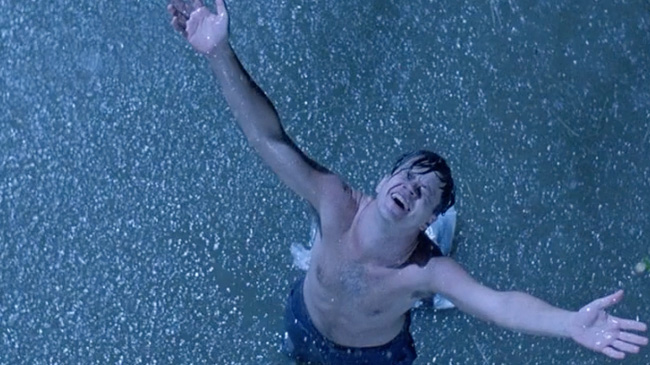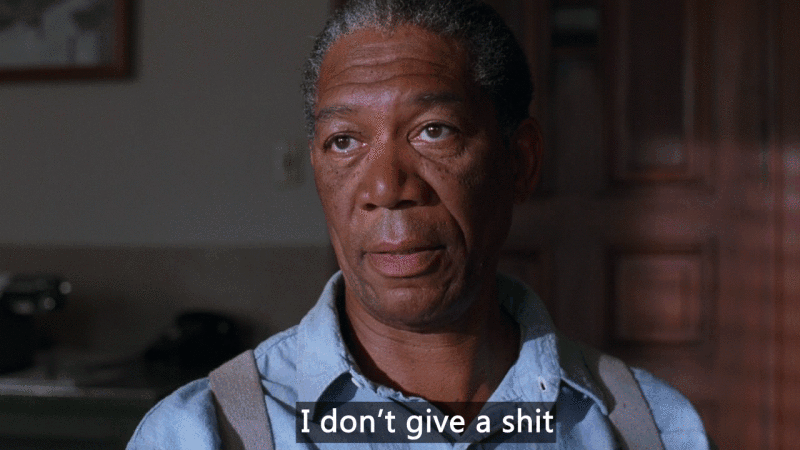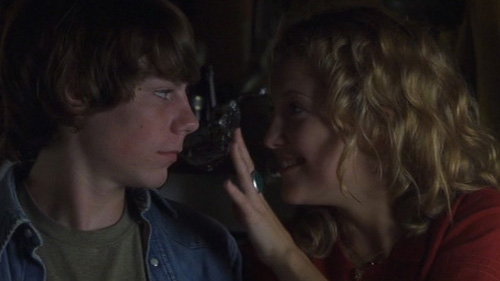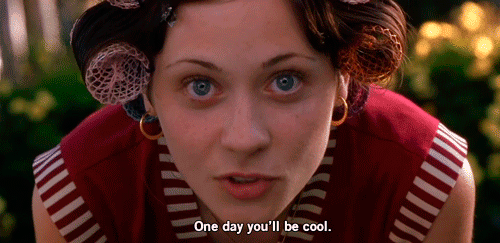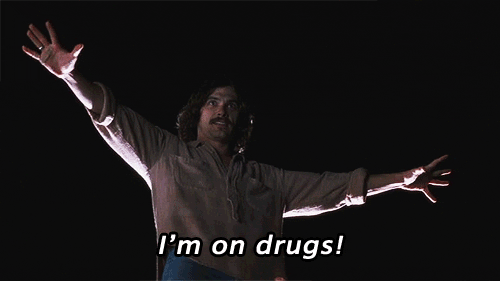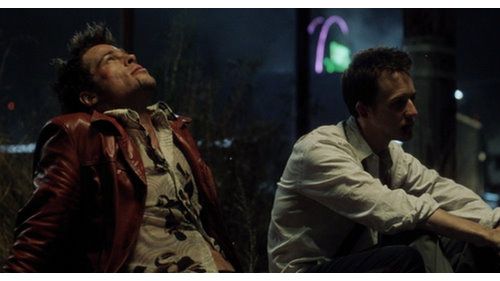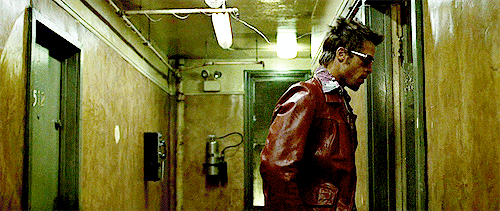This is part 2 of an awesome two-part GUARDicle about beloved movies that totally bombed. Here’s part 1!
Some movies are excellent. Like “Bill and Ted” excellent, and we all lavish great praise upon them. Some movies even fold themselves into the very fabric of the culture. Unfortunately, some of these movies get a bogus reaming at the box office. Like “Bill and Ted” bogus.
God I need to watch those movies again. Anyway, we continue with part 2 of our list of great movies with small beginnings . . .
Shawshank Redemption
“Look at my friend, Andy Dufresne. That boy loved the rain. Every Tuesday, Andy Dufresne would spread his arms out wide and say “I AM THE ELEMENTAL LORD OF WATER. FILL ME WITH YOUR TRIBUTE, GREAT SKYBIRD QUETZALCOATL.” Andy Dufresne was crazier than a shithouse rat, is what I’m saying.” – God
Okay, so that’s not what the Shawshank Redemption is about. But it should have been. Instead we got an uplifting movie about the unbreakable power of hope. Instead we learned that sometimes you have to crawl through a river of poops to get to the light at the end of the poop tunnel. Instead we learned, as I mentioned last week, that Clancy Brown is a terrifying dude. Shawshank Redemption has been voted one of the finest films of the nineties multiple times, and many would consider it one of the finest films in general without too much scoffing. Which is a shame, really, because it hit the theaters in 1994, took five steps like Bill, then collapsed on the lawn. Spoiler alert, I guess.
Why did it fail so spectacularly? Well, first off, the movie was up against some pretty stiff competition. Forest Gump, Dumb and Dumber, and Pulp Fiction all came out in the same year. That’s a pile of terrifying juggernauts to exchange blows with. The critics actually loved the movie for the most part, but that glowing praise bounced off the general public’s closed wallets like a lightsaber off a cortosis weave codpiece. Morgan Freeman (who played the wise cigarette-dealing prisoner “Red”) when asked about the movie’s failure, thought the unbelievable competition was the problem. Tim Robbins, who played “Andy Dufresne,” had a different idea. He had many people come up to him and ask him what the hell a “Shawshank Redemption” was. Basically, most people found the title an incomprehensible jumble of nonsense syllables and wrote the movie off as pretentious.
Original Review: “Andy remains a downtrodden cipher – and this lends the proceedings a hollow, generic feel, as if Darabont had constructed a blueprint out of old prison melodramas. Robbins never quite makes emotional contact with the audience.” – Entertainment Weekly
Budget: 35 million
Domestic Box Office: 16 million
Reason for Resurrection: As unbelievable as it sounds, faith. Faith in three different flavors, as a matter of fact. The first act of faith came from Warner Brothers, who, despite the movie going into grand mal seizures at the box office, still shipped over $300,000 rental copies across the country. This was considered “excessive” even by Warner Brothers. It became a regular rental across America through sheer numbers, and once word of mouth started mouthing, people realized the flick was actually damn good. Also, because of the uplifting nature of the film’s message, video rental shops were reporting a high number of repeats – as in, the same person would rent the movie multiple times just to get a shot of the feelgood sauce. The second act of faith came from the TNT network, which began showing the movie constantly. Reportedly Ted Turner, owner of the network, was a huge fan and committed himself to single-handedly smashing the flick into the public’s consciousness whether they wanted it or not.
The third act of faith comes from, well, faith. Like God-faith. Apparently the Shawshank Redemption became a kind of pillar for religious types to rally around. The trail of persecution, “death,” and rebirth is remarkably similar to Jesus Christ’s own journey, and people noticed that pretty quickly. Hell, the movie’s climax is an almost literal baptism. Add to that a strong message of enduring faith and hope in the face of terrible odds, and it’s really no surprise. Plus, you know, God is in the movie.
Almost Famous
Thanks to my wife’s obsession with this movie, I’ve seen “Almost Famous” roughly one-thousand times. Almost Famous is my wife’s “Empire Strikes Back” combined with meth. Almost Famous is perhaps less-surprising than many movies on this list. Nobody thinks that Almost Famous was a blockbuster . I mean, there are literally no explosions or sexual assaults in this movie, which happen in both of the other movies on this week’s list. The real shock with Almost Famous is how deeply this movie has managed to crack into the public consciousness without even realizing it. If you’re even slightly raised from other people and shout “I Am A Golden God!” people will laugh and expect you to leap to your near-death. The movie almost completely co-opted the song “Tiny Dancer” for pretty much an entire generation. It introduced many people to the excellence that is the late, great Philip Seymour Hoffman.
Almost Famous is based off director Cameron Crowe’s own experience as a teenage writer for Rolling Stone magazine. The movie relies almost completely on nostalgia, but it’s a knife-edge nostalgia that isn’t afraid to stop and say: “Okay, so these rock gods were full of shit and the groupies are pumped with life-ruining hardcore drugs.” Why did the movie explode on the launch pad so spectacularly? The fact is, no one really knows. It baffled everyone – Cameron Crowe had just come off of mega-hit “Jerry Maguire,” and everyone knew his next movie would get the same attention. Womp womp.
The fact is, it might just come down to numbers. “Almost Famous” has an indy film aesthetic and story, but somehow still managed to cost 60 million dollars. Had it cost 10 or even 15 million, it would have been a success. Considering it had absolutely no one famous in it (ironiiicc), the studio was baffled at where all the money went. Crowe even overshot the budget by $15 million and delivered the movie late. Basically, what happened is what you might imagine would happen when you give a successful director carte blanche to film a movie based off his own childhood – meticulous attention to detail and a Gollum-like obsession with perfection. Crowe reshot scenes from every conceivable angle. The script was about 60 pages longer than your average script. The main character’s actor (Patrick Fugit) was underage, which means he could only work so many hours a day. The music rights budget was twice the size of a normal movie (which is why it’s filled with so many amazing songs). The costume budget bloated into insanity because Crowe insisted that even background extras have 100% authentic ’70s clothing.
A period character piece about innocence lost like “Almost Famous” just doesn’t have the kind of movie-theater juice to float a 60+ million budget.
Original Review: “When you hang out with stars who take you in and make you feel as cool as they are, should you expose their wanton excesses or write an airbrushed account that pleases your adopted friends? This is not the most compelling moral struggle in the world, unless you happen to work in the trade. And William’s wide-eyed coming of age doesn’t raise the bar much higher.” He went on to say that Kate Hudson’s “Penny Lane” was “meant to define his life, embody his new lifestyle and somehow light a candle in our hearts, too. But neither Hudson nor the character Crowe has scripted for her is up to the task. And William’s rapture never evolves beyond a high-school obsession.” – Desson Howe, The Washington Post
Budget: 60 million
Domestic Box Office: 32.5 million
Reason for Resurrection: Excellence, really. Cameron Crowe’s meticulous madness might make for a bad business decision, but all that passion went right into a very authentic movie. It’s one of the few movies that manages to balance escapism with cold reality, and it tap-dances between those two with effortless ease. Patrick Fugit not only makes my wife swoon (for some reason), but he plays the wide-eyed innocent right to the hilt. Considering he was 16-years-old at the time and still manages to hold an entire film is extra-strength kudos. It was basically Kate Hudson’s first movie too, and she proved in one flick that not only was she a fantastic actress, but she broke out of her mom’s shadow with hardly a whisper.
Excellence, over-time, translates to word of mouth, which translates to a slow seep into the zeitgeist. Plus, Roger Ebert called it the best movie of the year, and the movie won “Best Screenplay” at the Oscars. That helped garner attention somewhat.
Fight Club
That’s right. The movie that defined the existential funk of an entire generation of men was a pathetic failure in theaters. I couldn’t believe it – I remembered when this movie came out, and it was all everyone was talking about. “Fight Club” holds a firm place on many a list of “Best Movies of All Time,” and it certainly serves as a ’90s cultural touchstone to this day. Fight Club had a dirty, truth-bomb aesthetic that meshed perfectly with the “fuck you”grunge vibe that had started to chainsaw against the over-polished pop culture of the late ’90s. The politically correct, culturally inoffensive, neutered lifestyle was beginning to wear thin for many folks at the time. Masculinity was on the outs and had been for some time – husbands in TV shows were bumbling morons who always lost every competition, and women were superior in every way. Men couldn’t even beat women in physical competitions. Men were supposed to be sensitive, non-aggressive, non-opinionated, silent money providers. It’s no surprise that when Tyler Durden said “We’re a generation of men raised by women,” more than a few men sat up and perked their ears.
Not only men were feeling the sting of cultural blandness, though. Everyone at the time wondered if all the endless peaceful consumerism and participation-award philosophy had a point. Tyler put it best when he said:
“We’re the middle children of history, man. No purpose or place. We have no Great War. No Great Depression. Our great war is a spiritual war. Our great depression is our lives. We’ve all been raised on television to believe that one day we’d all be millionaires, and movie gods, and rock stars, but we won’t. And we’re slowly learning that fact. And we’re very, very pissed off.”
Now if all this is sounding very “Men’s Rights,” that’s good, because Tyler Durden’s wisdom has a dark side. Like any great devil, Tyler Durden lies with the truth. Were men feeling neutered? Were people feeling bored and complacent? Absolutely. However, the movie makes a point to show you just what happens when you take those thoughts to their absolute conclusion – anarchy. Mindless, stupid, juvenile destruction that tears down a society we built for a very good reason. It’s the best kind of allegory: it points out what’s wrong with society, but at the same time admonishes armchair anarchists for their overblown solutions to those problems. The real message of the movie is: fix what’s broken, but don’t throw the civilization baby out with the bathwater.
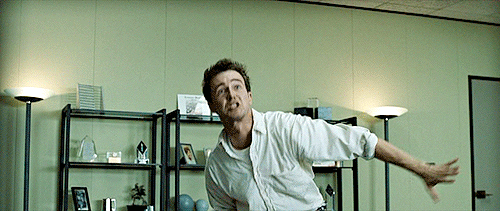
Now why did Fight Club bomb?
1) It’s primary audience couldn’t actually watch it. Apparently during testing, they found that teenagers reacted the best to the film, and ought to be its target demo. However, teenagers can’t watch a Rated-R movie. And, moreover, the last third of the movie is dedicated to telling you how stupid you were for liking the first two-thirds of the movie. Now, adults can handle that kind of contradiction and still enjoy a movie (we’re experts at embracing and coming to terms with moral contradictions), but many teenagers either missed the point or got pissed off.
2) 20th Century Fox had no idea how to market the film. It was too violent for the intelligent crowd that the movie was written for, but it was too smart for people who just came for the punch-punch. They tried to run ads during WWF shows – that’s how completely baffled they were about how to market the movie.
3) The violence. The UK censored multiple scenes in the film. Movie-goers with weaker stomachs couldn’t handle the brutality. The executives thought Brad Pitt would bring in the female demographic, but many women didn’t like Brad Pitt’s portrayal as a greasy blood muse who inspired more revulsion than attraction.
Budget: 63 million
Domestic Box Office: 37 million
Reason for Resurrection: The reason for its failure was, perhaps poetically, the reason for its ultimate success. Teenagers couldn’t go to the theater to see it, even though they desperately fucking wanted to. Critics, mothers groups, and your usual pack of over-sensitive handwringers were shouting to the rooftops about how irresponsible, inappropriate, and subversive the movie was. Holy shit, guys. Try to concoct more enticing teenager-bait. Video and DVD sales exploded, and teenagers denied their viewings finally absorbed the film in droves. It’s a movie about rebels, for rebels, even if the movie takes time to point how naked, thoughtless rebellion is sort of silly. Teenagers don’t give a shit about that. They got a sort of “Teenage Rebel Gandhi” in the form of Tyler Durden, a handsome, physically capable, sexually desirable man who spouted truisms like Jack Kerouac on speed. He made fun of neutered consumers (read: parents), he had a boundless well of testosterone (laugh, fight, fuck, all day), and he had some pretty fantastic outfits.
Those “fuck yeah” teenagers grew into adults who learned to process the film’s conflicting messages as a sort of socio-political gumbo.
The More You Know . . .
I guess the message of this whole thing is, you know, make good movies. Tell good stories. The rest is out of your hands.

